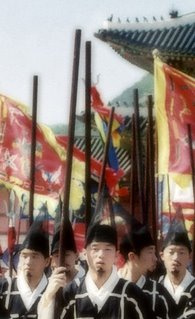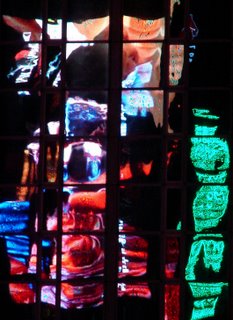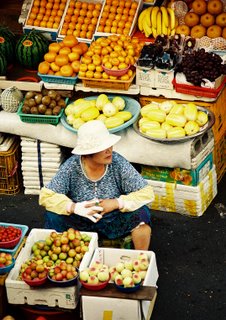Korean Tv has evolved in the years that I have been here. Cable and satellite services now provide dozens of channels, some digital, some high definition. There are news, sports, home shopping, religious, educational, documentary, cartoon, and computer gaming channels - not so much different from back home. Many channels play movies and other programs from English-speaking countries subtitled in Korean - thus I never have to miss an episode of the Amazing Race, American Idol, or Lost. Discovery Channel, National Geographic, and CNN offer their usual lineups.
But Korean TV is undoubtedly different, as you would expect. Whether a country's TV offerings reflect or create the everyday reality of ordinary people is always a subject of debate among those who care about such things.
I only wanted to show you some of the things I noticed about Korean TV that people elsewhere might find interesting.
So I recorded bits from TV dramas, movies, and advertising that I felt were representative of what is on screen every day here.
VIDEO 1
VIDEO 2
VIDEO 3
Today, I wanted to show how women are portrayed on the tube here. Feel free to comment. Are these depictions of women different from those you would see where you are from? Are these images positive in your eyes? Are they an accurate reflection of the roles played by Korean women and their character as a group and as individuals? Or are these stereotypes? What message do these images convey?



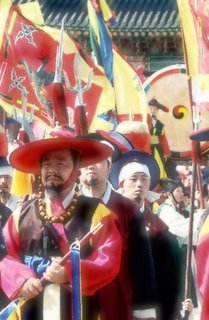 I took these photos on a film camera and when I had digital images made from the negatives, the photos turned out rather grainy. I decided to soften the images to solve the problem - it lends a faded, glimse-into-the-past kind of effect that I think is actually quite nice.
I took these photos on a film camera and when I had digital images made from the negatives, the photos turned out rather grainy. I decided to soften the images to solve the problem - it lends a faded, glimse-into-the-past kind of effect that I think is actually quite nice.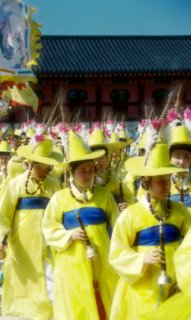 Why can't military, police, and public officials have uniforms like this anymore? I, for one, would love to wear hanbok to work every day.
Why can't military, police, and public officials have uniforms like this anymore? I, for one, would love to wear hanbok to work every day.